#italian history
Text
25 April - Anniversary of Italy's Liberation
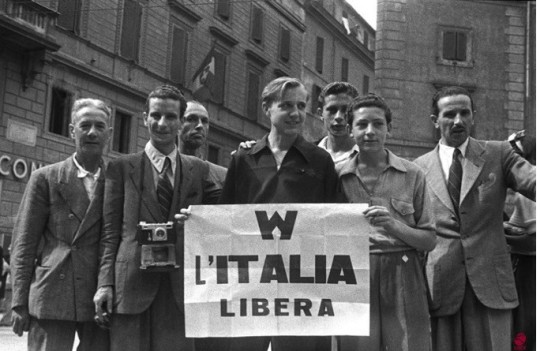
25 April also known as the Anniversary of Italy's Liberation is a national holiday in Italy that commemorates the victory of the Italian resistance movement against Nazi Germany and the Italian Social Republic, puppet state of the Nazis and rump state of the fascists, culmination of the liberation of Italy from German occupation and of the Italian civil war in the latter phase of World War II. That is distinct from Republic Day (Festa della Repubblica), which takes place on 2 June and commemorates the 1946 Italian institutional referendum.
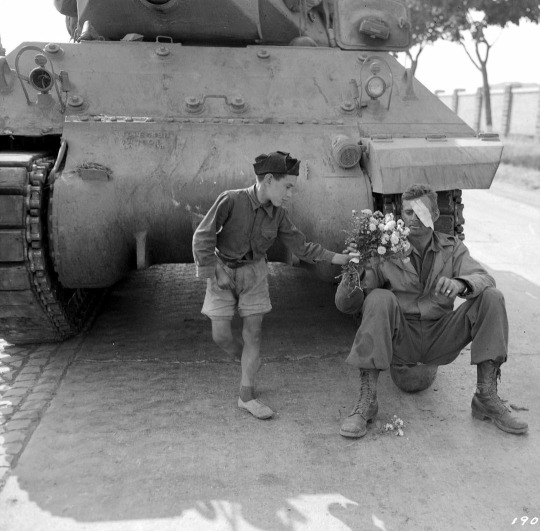
Every year on 25 April Italy celebrates Liberation Day, known in Italian as Festa della Liberazione, with a national public holiday.
In addition to the closure of schools, public offices and most shops, the day is marked with parades across the country, organised by ANPI, Italy's partisan association which preserves the memory of the Resistance movement against Fascism.
The occasion is held in commemoration of the end of the Fascist regime and of the Nazi occupation during world war two, as well as the victory of Italy's Resistance movement of partisans who opposed the regime.
Formed in 1943, the partigiani comprised a network of anti-Fascist activists, from diverse backgrounds including workers, farmers, students and intellectuals, across Italy.
Resistance

Together they united in armed resistance against the Nazi occupation and the Fascist regime, making their struggle both a war of liberation and a civil war.
The annual event marks the day in 1945 when a nationwide radio broadcast calling for a popular uprising and general strike against the Nazi occupation and Fascist regime was announced by the National Liberation Committee of Upper Italy (CLNAI), a political umbrella organisation representing the Italian Resistance movement.
This announcement - made by partisan and future president of Italy Sandro Pertini - resulted in the capture and death of Fascist leader Benito Mussolini, who was shot three days later.
The Festa della Liberazione represents a significant turning point in Italy's history, paving the way for the referendum of 2 June 1946 when Italians voted in favour of a republic and against the monarchy which had been discredited during the war and whose members went into exile.
Scurati controversy

This year's event takes place against the backdrop of a political controversy after the state broadcaster RAI stopped a well-known Italian writer from delivering an anti-fascist monologue on television a few days before the Festa della Liberazione.
Antonio Scurati accused RAI of censorship after his monologue was dropped abruptly from the Saturday night talkshow Chesarà for "editorial reasons".
The writer claimed that the move highlighted the alleged attempts by premier Giorgia Meloni's right-wing government to exert its influence over the state broadcaster which has seen several veteran presenters leave over the last year including Fabio Fazio, Bianca Berlinguer and Amadeus.
In his speech Scurati criticised the "ruling post-Fascist party" for wanting to "re-write history" rather than "repudiate its neo-fascist past".
RAI director Paolo Corsini rejected any talk of censorship, as did Meloni who responded to the controversy by posting Scurati's text on her Facebook page, stating that the broadcaster had "simply refused to pay 1800 euro (the monthly salary of many employees) for a minute of monologue".
Meloni added that the Italian people "can freely judge" the contents of the text which was later read live on air by Chesarà presenter Serena Bortone in an act of solidarity with Scurati.
#italy#italia#25 aprile#25 april#festa della liberazione#liberation day#antifascism#history#world war ii#fascism#nazism#antinazi#partisans#resistence#1945#italian history#antonio scurati#giorgia meloni#governo meloni#serena bortone#censorship#storia italiana
134 notes
·
View notes
Text
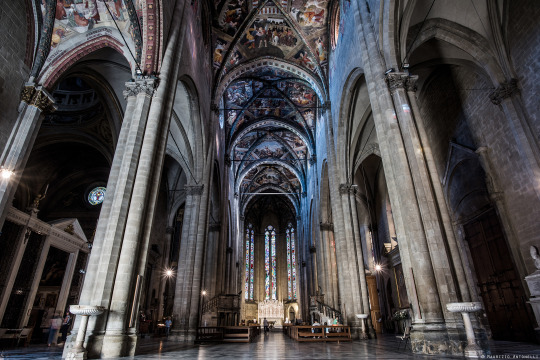

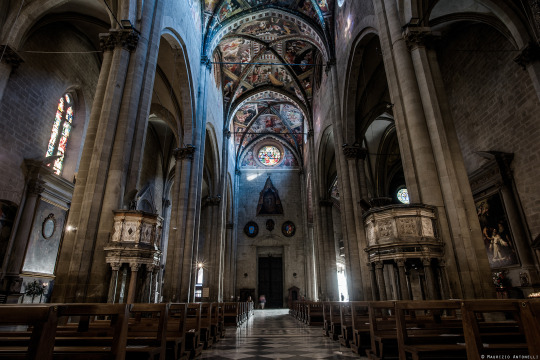
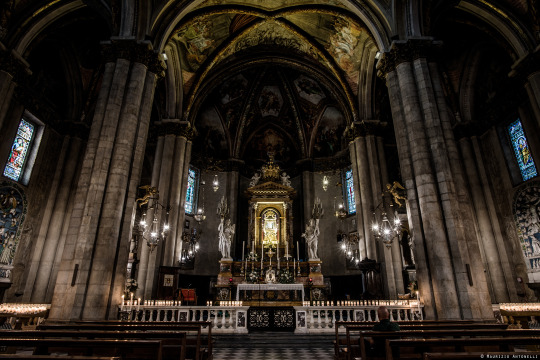
October 1, 2023
Cattedrale dei Santi Pietro e Donato (Arezzo, Italy)
© Maurizio Antonelli
#photography#ph maurizio antonelli#cathedral#gothic architecture#gothic church#italian heritage#italian history#13th century#arezzo#tuscany#italy#gothic mood#dark atmosphere#dark photography#ademater personal selection blog
638 notes
·
View notes
Text

Il femminiello by Giuseppe Bonito (mid 18th century)
The femminielli are a population of third-gender people in traditional Neapolitan culture. While many try and fit them into being either 'feminine gay men' or 'transgender women', the femminielli are best understood by their own unique history and actions. As gender is a social construct, some genders are specific to specific societies, and can't easily be transposed onto other terms!
185 notes
·
View notes
Text
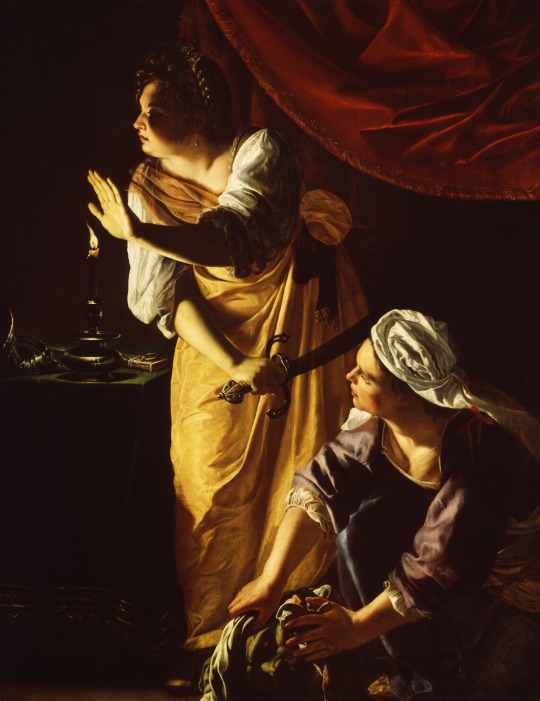
Artemisia Gentileschi, Judith and Her Maidservant, c. 1623-1625
#artemisia gentileschi#judith slaying holofernes#baroque art#italian art#art history#baroque#italian history#italian painter#female painter#biblical history#jewish history#chiaroscuro#tenebrism
337 notes
·
View notes
Text
Only honest answers. Open to anyone who -good for them - isn't it*lian, still any it*lian could spam it.
Other suggestions are welcomed on the tags, if someone is indecisive can put the various choices on the tags.
#italy tag#italian history#fashion#italian fashion#design#sanremo#sanremo 2024#ferrari#ancient rome#commedia dell'arte#opera#italodisco#italodance#mediterranean sea#vatican#pope#operablr#theatre#baroque#renaissance#italian music
150 notes
·
View notes
Text







Women in History Month (insp) | Week 3: Consorts and concubines
#historyedit#perioddramaedit#women in history#women in history month challenge#my edits#mine#isabella of parma#imperial noble consort dunsu#eleanor of toledo#ines de castro#mme du barry#eugenie of montijo#empress fu shou#austrian history#chinese history#italian history#french history#portugese history#18th century#15th century#3rd century#14th century#19th century
109 notes
·
View notes
Text
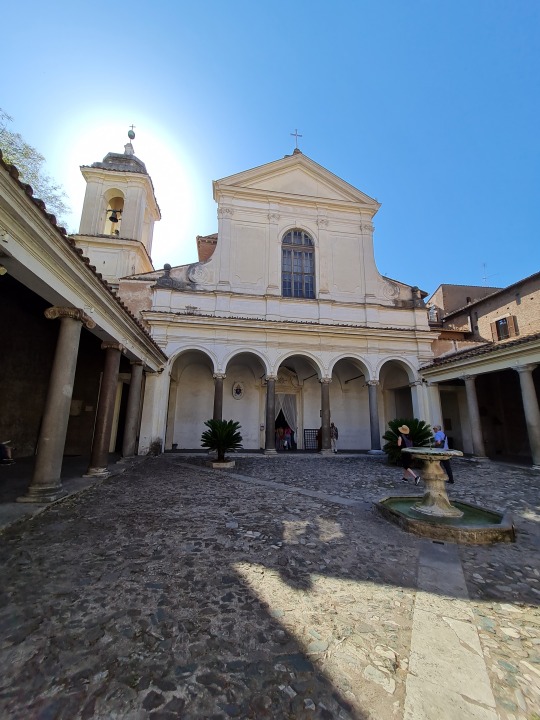
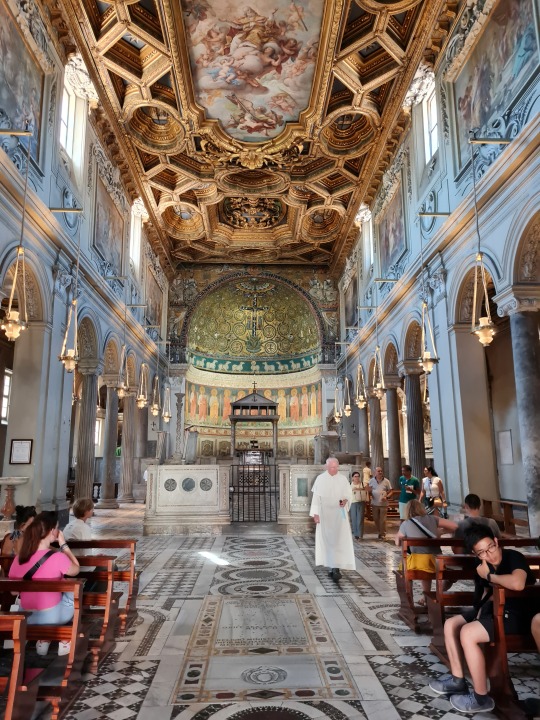
Basilica di San Clemente al Laterano in Rome, Italy
Under the basilica that stems from the 12th century, there are two more layers that you are able to visit: a basilica from the 4th century and a mithraeum from the 2th century.
In my opinion the most interesting church Rome has to offer.
#basilica#san clemente#rome#rome italy#italy#italia#italian architecture#architecture#history#italian history#roman history#ancient rome#church#catholic church#mithraeum#mithras#romanesque#archaeology#roman archaeology#culture#travel#traveling#photography#wanderlust#travel tips#travel blog#travel destinations#explore#travel photography#art
112 notes
·
View notes
Text
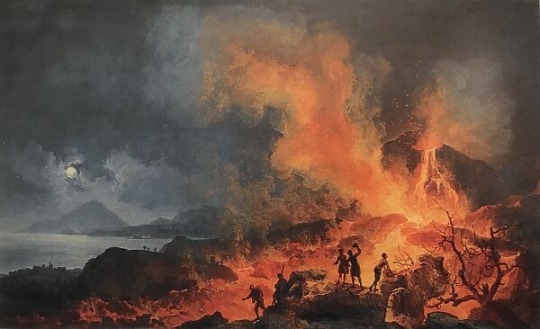
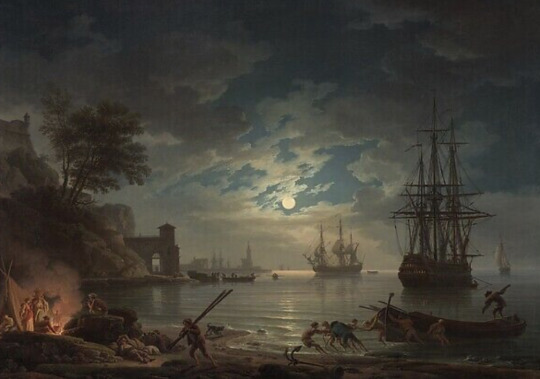
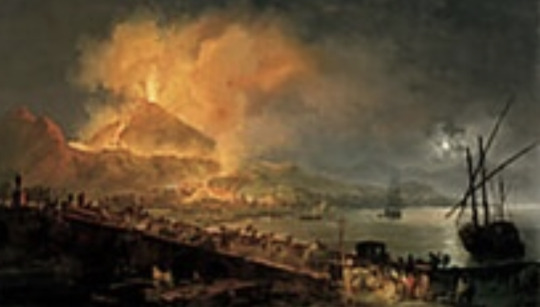
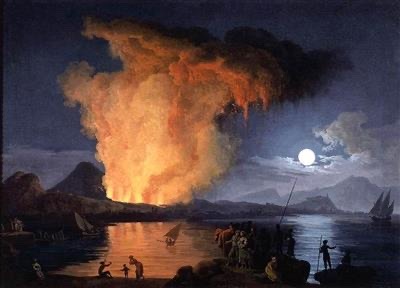
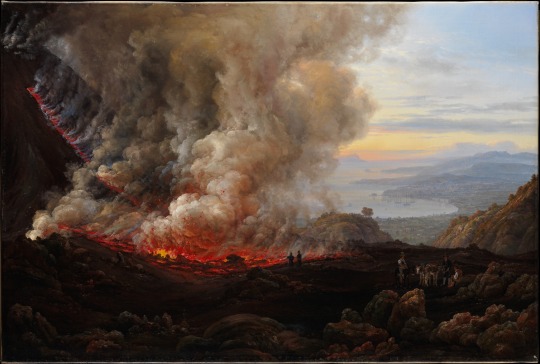
Pierre Jacques Volaire, The Eruption of Vesuvius, A View of Naples Beyond, ca. 1776 (4 above)
Johan Christian Dahl, An Eruption of Vesuvius, 1824 (bottom)
#Pierre Jacques Volaire#johan christian dahl#vesuvius#volcanic eruption#volcano#nature#natural disasters#aesthetic#nightscape#landscape#landscape aesthetic#naples#italy#italian history#modern art#art history#aesthetictumblr#beauty#tumblraesthetic#tumblrpictures#tumblr art#tumblrstyle#tumblrpic#artists on tumblr#french painter#french artist
115 notes
·
View notes
Text
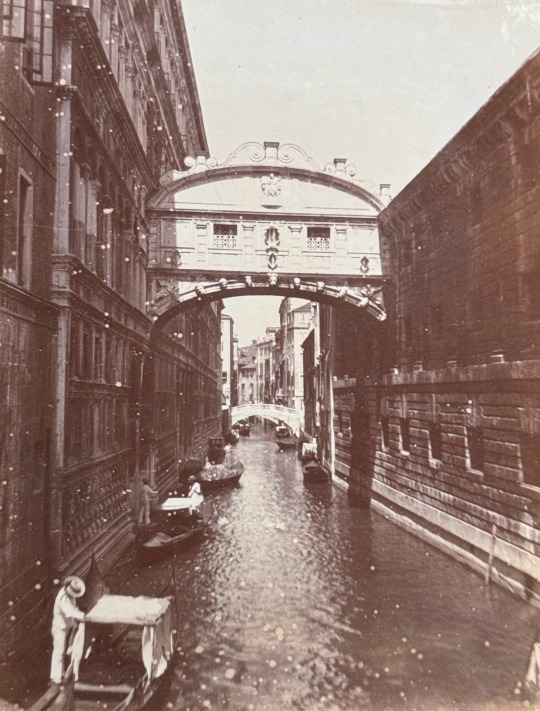
Bridge of Sighs in Venice, Italy, c. 1899-1901.
#1890s#1900s#old photos#*#architecture#venice#bridge of sighs#italy#antique#photography#italian history#travel#early photography#old photography#vintage#italian#antique photo#bridges#venice italy#vintage architecture#old building#building#historic photographs#historical photos#history
42 notes
·
View notes
Text
Since today it's the Ides of March...
"Tu quoque, Brute, fili mi!" (works both as a question and exclamation) are the famous Latin words that Julius Caesar is said to have pronounced after he recognized his son Brutus among his stabbers.
We occasionally repeat them mostly jokingly (especially in their abbreviated form "Tu quoque") either when we want to reprimand someone but also (faking a surprised reaction) when we find out someone we somehow trusted is at fault
#it#italian#langblr#italiano#italian language#italian langblr#languages#ides of march#italian things#italian stuff#sayings#modi di dire#italian history#italian sayings#tw stab mention
35 notes
·
View notes
Text
Hey History Tumblr! I’m looking for resources in regards to the lives of people in Venice during the 15th century. The classes, economics, jobs, what were family laws. Age of marriage, big families (if any). How did the people live, festivals, rituals. I’m finding a bunch of things about the Ottomans and the trade but I’m hoping for the equivalent of ‘widow and ward in medieval England’ type books for Venice. What were the households like, inheritance? Noble class vs merchant classes, etc. books are love, documentaries also great (I have a dvd set from my trip to Venice but it’s currently packed away and more of a high level overview)
Tagging history friends even though I know you’re British history: @theladyelizabeth @mihrsuri @harritudur @english-history-trip @queenemaker
#Venice#Venetian history#italian history#history tumblr#my general habit of going through a bibliography and looking up works#is a bit more difficult here#and I imagine that a lot of this stuff#is likely in Italian
35 notes
·
View notes
Text
Okay but can we all collectively agree that Peter Sullvian's Ascanio Sforza in The Borgias always seems to be only one step away from glancing at the camera like he's in The Office?
#he has to deal with everyone's nonsense constantly#the borgias#borgias#peter sullivan#ascanio sforza#he's so iconic btw#hands down my favourite character now that Machiavelli isn't getting any proper screeentime#sforza#rome but in a wild twist not ancient rome#italian renaissance#renaissance#tv shows tag#his facial expressions are always sending me#lucrezia borgia#cesare borgia#italian history#rome
26 notes
·
View notes
Text

Psyche Revived by Cupid's Kiss, Antonio Canova, 1787-1793
#italian art#italian sculpture#antonio canova#sculpture#art history#18th century#18th century art#italian history#roman mythology#greek mythology
131 notes
·
View notes
Text
Italian literature tournament idea?
I have many things to do but still I want to fill the void of my existence, so a week ago I thought "why don't create a tumblr tournament between the authors from italian literature?".
For the names there are two simple option:
or I will chose the names from the literary canon
or I will open a google form when everyone, by a specified date, will insert the author names that will be put in the tounament.
both the three options combined: I will but the names already chosen under this post and after that open a google form if anyone else want to add some names. The more the merrier the longer = more violence between our favourite author from high school <3
The combination for the various challenges will be sorted randomly, I think I'll use a program/generator to do the job.
Idk if somebody else did the same thing for other literature, like the french or russian, but this idea could be used for various possibilities.
+ I think I'll add also playwrites, for me theatre and literature are different fields but a playwriter at the end of the road is still an author.
I also wanted to do the same thing for italian art, but is a field too wide and maybe in a future I could do it more by art schools/genres (best baroque artist/architect, best renaissance artist/architect etc).
#italian literature#italian history#tumblrita#dante alighieri#giacomo leopardi#giovanni boccaccio#divine comedy#luigi pirandello#italian theatre#tag a caso lessgoooo#angelo poliziano#marsilio ficino#elena ferrante#langblr
29 notes
·
View notes
Text
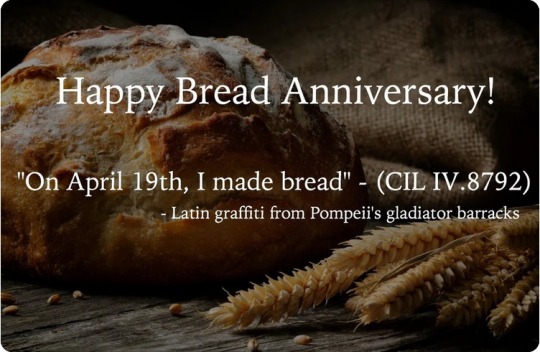
#Kult of Athena#KultOfAthena#History Friday#Bread Anniversary#Roman History#Italian History#European History#Ancient History
17 notes
·
View notes
Text

Noi fummo i Gattopardi, i Leoni; quelli che ci sostituiranno saranno gli sciacalletti, le iene; e tutti quanti gattopardi, sciacalli e pecore, continueremo a crederci il sale della terra.
Giuseppe Tomasi di Lampedusa, Il Gattopardo (The Leopard)(1958)
We were the Leopards, the Lions; those who'll take our place will be little jackals, hyenas; and the whole lot of us, leopards, jackals, and sheep, we'll all go on thinking ourselves the salt of the earth.
#lampedusa#giuseppe tomasi di lampedusa#il gattopardo#the leopard#quote#novel#literature#film#cinema#movie#nobility#decline and fall#sicily#italian history#aristocracy#sicilian nobility#italy#society#social change#elites#ruling class#modernisation#old order#custom#heritage#arts#culture
55 notes
·
View notes